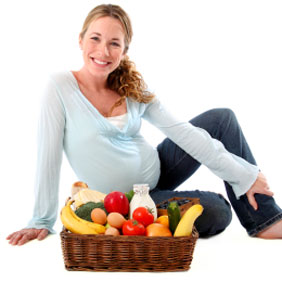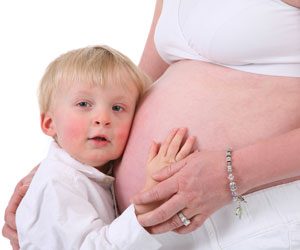 What are the tips for safe eating and drinking before and during pregnancy? Thinking about getting pregnant? This article is by Food Standards Australia New Zealand (FSANZ). It will provide you with vital information about what you eat and drink before and during pregnancy.
What are the tips for safe eating and drinking before and during pregnancy? Thinking about getting pregnant? This article is by Food Standards Australia New Zealand (FSANZ). It will provide you with vital information about what you eat and drink before and during pregnancy.
Dr Paul Brent, FSANZ’s Chief Scientist, said that thinking about having a baby is an exciting time. But there are a few vital things to remember about eating and drinking. This is to make sure that you and your baby are healthy.
‘Women can often rely on female friends and relatives for advice when they become pregnant. But much of this current advice from FSANZ is based on the latest science. It may not have been around even a few decades ago,’ Dr Brent said.
‘For example, due to changes in the way we store, handle and consume foods, Listeria has become a greater concern. Listeria is a food poisoning bacteria that causes few or no symptoms in most people. But it can be very dangerous if you are pregnant with your unborn child or newborn baby.
‘While many women seem to understand they should avoid soft cheeses and paté during pregnancy they also need to know there is a range of other high-risk foods. Examples are cold-cooked meat, chicken and salads whether eaten inside or outside the home.
‘Also meeting women’s requirements for folic acid and iodine has been helped by the addition of these essential nutrients to bread. In September 2009, it became a legal requirement in Australia for all bread-making flour, except organic flour, to contain added folic acid. This is a Government initiative that acts as a safety net for women. To help them protect their babies against neural tube defects. Also, from October 2009 the Australian Government required that salt used to make bread, except organic bread, be replaced with iodised salt. This will provide enough iodine for most of the population. However, because pregnant and breastfeeding women have the greatest need for iodine, they require women to take iodine supplements during pregnancy and breastfeeding.
‘Many of these tips take a bit of planning and it is best to start before you become pregnant. For example, starting to take folic acid supplements one month before conception. For the first three months of pregnancy reduce the risk of spina bifida.
‘If you think you might be pregnant – don’t worry – start following this advice as soon as you can. If you are thinking about having a baby it’s a good idea to visit your doctor. Discuss what you may need to do to prepare,’ Dr Brent concluded.
Seven tips for safe eating and drinking before and during pregnancy are:
- Eat a healthy balanced diet with plenty of fruit, vegetables, and cereals. This includes bread, rice, pasta and noodles (preferably wholegrain); lean meat, poultry and fish; low or reduced fat milk, yoghurts and cheeses; and plenty of water.
- Ensure you get enough folic acid. In addition to eating foods with added folic acid (such as bread) and naturally rich in folate, health professionals recommend taking a supplement of at least 400 micrograms every day one month before and three months after conception. This is to reduce the risk of neural tube defects such as spina bifida
- Ensure you get enough iodine. In addition to eating foods with added iodine (such as bread) and naturally rich in iodine, health professionals recommend taking iodine supplements every day during pregnancy and breastfeeding. It is because mild to moderate iodine deficiency can result in learning difficulties. It can affect your baby’s development of motor skills and hearing.
- Eat two to three servings of fish a week. But, avoid eating those fish with high levels of naturally occurring mercury: shark, broadbill, marlin, swordfish and orange roughy.
- Avoid foods that could contain listeria. Examples are soft and semi-soft cheeses like brie, camembert, ricotta, blue, and feta; soft serve ice cream; unpasteurised dairy products; paté; chilled seafood; pre-packed salads and fruit/vegetable or served from smorgasbords or salad bars and cold cooked meats from sandwich bars, and packaged ready-to-eat meats.
- Don’t drink alcohol during pregnancy or while breastfeeding.
- Limit your caffeine intake to four cups of tea, or three cups of instant coffee, or four cola drinks or one espresso coffee a day.
These are general recommendations for healthy women. For specific advice on individual needs, consult your midwife, doctor or an Accredited Practising Dietitian (APD) . To find an APD near you contact the Dietitians Association of Australia: www.daa.asn.au .
There is detailed information on the FSANZ website including brochures, fact sheets, web videos (including translations into Thai, Mandarin, Cantonese, Vietnamese and Khmer) and a web seminar.


Recent Comments